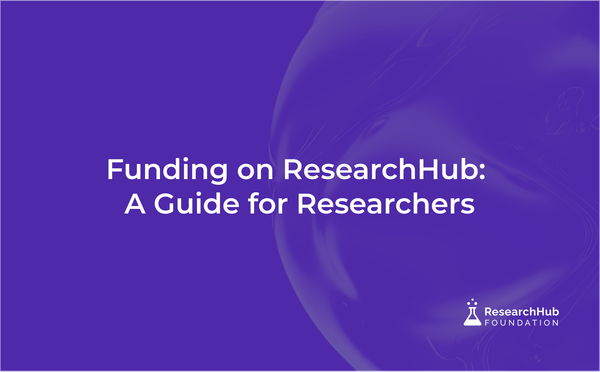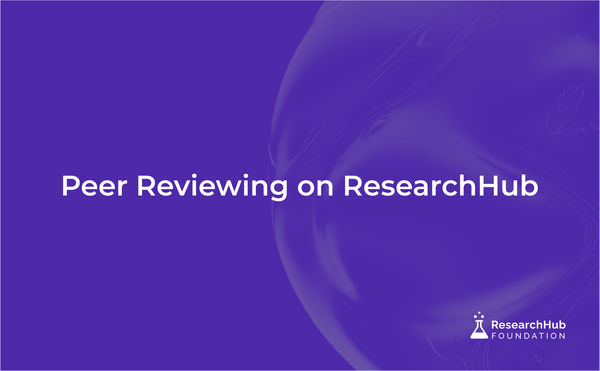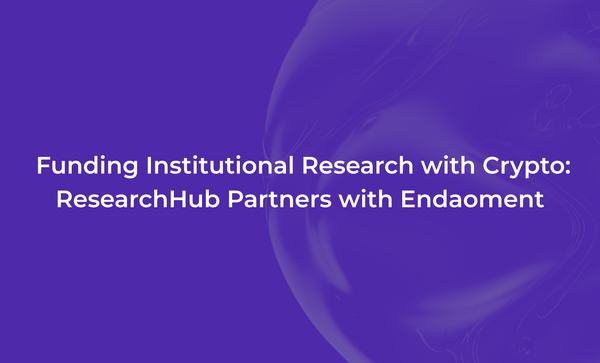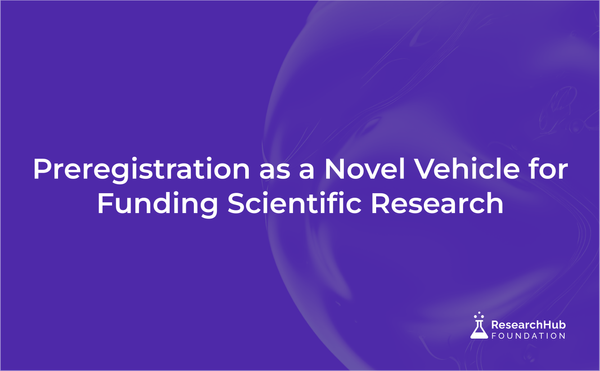The ResearchHub Story
On February 25, 2019, Brian Armstrong, co-founder and CEO of Coinbase, published a blog post outlining five significant challenges confronting the scientific community. Five years later, let us examine how ResearchHub has transformed the research landscape.
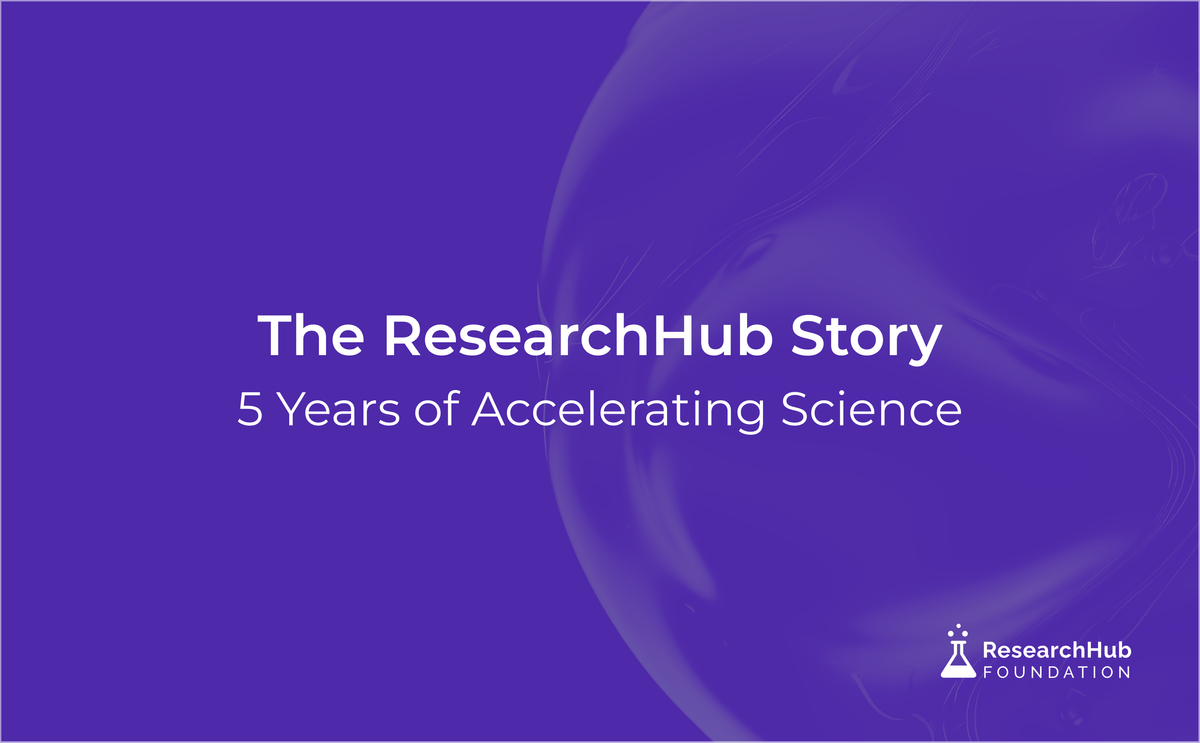
The Origin Story
On February 25, 2019, Brian Armstrong, co-founder and CEO of Coinbase, wrote a blog post identifying five major challenges facing science. With a vision inspired by the principles of open-source software, Armstrong set out to revolutionize the world of academic research. Now, five years later, we can reflect on the milestones ResearchHub has achieved. Let’s explore how ResearchHub has transformed the research landscape.
From Blog Post to Product
Brian Armstrong’s background in the fast-paced, transparent world of open-source software drove him to imagine a future where scientific progress could be accelerated in similar ways. The inefficiencies in academia were clear to him, and he believed that applying the collaboration, transparency, and efficiency found in software development to scientific research could catalyze breakthroughs. Since the challenges Armstrong identified resonated deeply with the academic community, his vision quickly gained traction and evolved into a tangible product. Patrick Joyce, who had previously left his Ph.D. program to develop a similar platform, discovered Brian’s blog post and reached out to him. After a meeting of the minds, together, they co-founded ResearchHub.
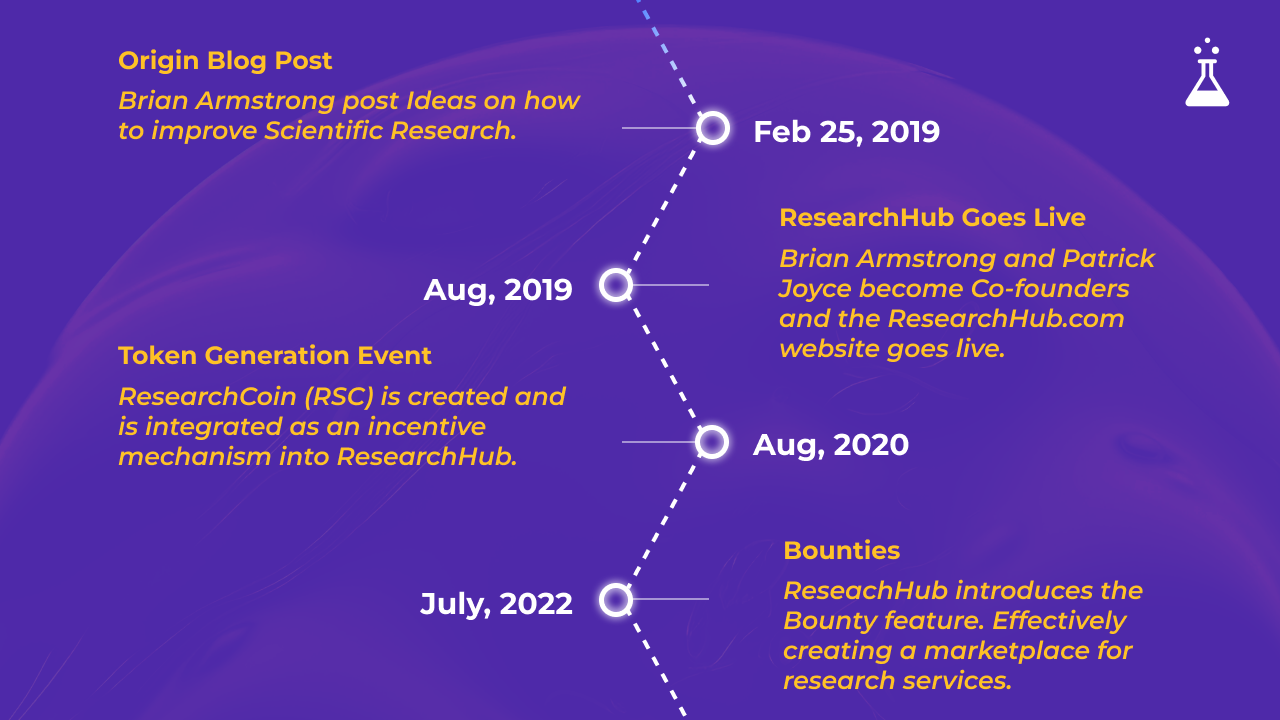
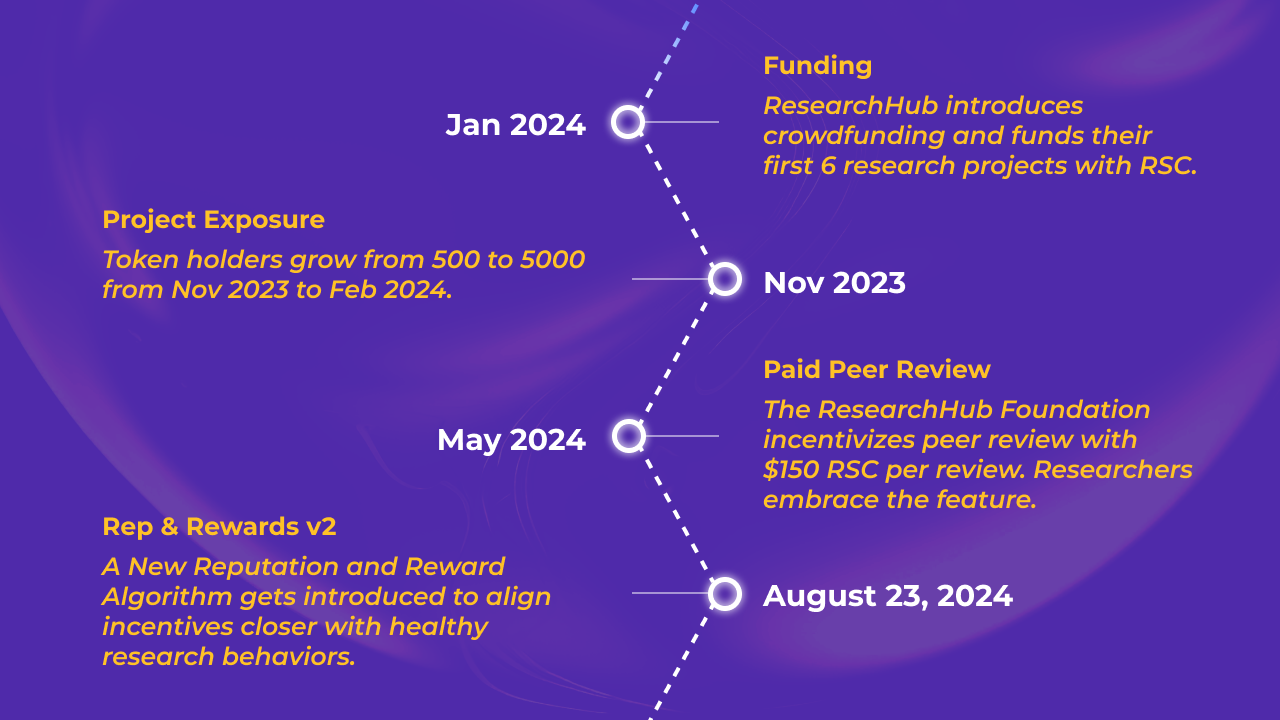
The Problem Statement: Why Was ResearchHub Created?
Academic Stagnation
In his original blog post, Armstrong highlighted the key challenges hindering scientific progress:
- Lack of Prioritization: Research is often driven by academic prestige rather than real-world impact. Projects can be misaligned with pressing global problems, leaving important innovations unexplored.
- Reproducibility Crisis: Scientific discoveries need to be replicable for real progress to occur, but many studies fail when put to the test. This crisis threatens the credibility and integrity of scientific research.
- Misaligned Market Incentives: Scientists are frequently rewarded based on citations and tenure rather than creating commercially viable or impactful outcomes. In academia, progress is often driven by metrics that don’t align with real-world market incentives.
- Limited Access to Funding: Access to resources remains a massive barrier for many scientists, especially those working outside well-funded institutions. Grants can be few and far between, and the application process is lengthy
- Academic Publishing Bottlenecks: The traditional academic publishing model is slow and costly, with researchers waiting months, sometimes years, for their work to be published. This bottleneck delays the dissemination of important findings and limits access to knowledge.
Gaps Between Academia and Industry
Armstrong pointed out the wide disconnect between academic scientists and business professionals. On one side, scientists create knowledge that sometimes doesn’t translate to practical application, while on the other, businesses are developing products without leveraging the latest scientific discoveries. ResearchHub was envisioned as a "translation tool" to bridge this gap, fostering a flow of ideas between innovation and commercialization.
Vision: The Open-Source Science Revolution
The mission was clear: accelerate scientific progress by making research function more like open-source software. In this new model, transparency, collaboration, and faster iteration would drive innovation, reducing the time between discovery and impact. ResearchHub was created as the platform to achieve this, combining the collaborative nature of GitHub with the peer-reviewed rigor of academia.
Key Achievements in Five Years
Prioritization and Tackling the Publishing Bottleneck
Since its launch, ResearchHub has made significant strides in addressing the inefficiencies in scientific research. By allowing researchers to import preprints and publish directly, the platform has reduced the time it takes to share new discoveries. Features such as upvotes and in-line commenting, allow users to prioritize research and collectively bring to attention what is relevant and meaningful. In order to ‘’replicate the positive aspects of journals (curation of content and status/reputation for those getting published) and eliminate the negative aspects (cost and delays),’’ we need to not only curate the relevant content but also allow users to build a scientific reputation. However, to promote openness and accessibility, traditional academic credentials cannot be the only way to develop a reputation in research. Therefore, ResearchHub built an internal reputation algorithm, combining traditional metrics with signals (e.g. upvotes) gathered on the platform.
ResearchCoin (RSC)
ResearchHub’s introduction of ResearchCoin (RSC) aligns market incentives with scientific contributions, allowing researchers to earn rewards for publishing, reviewing, and discussing papers. With its bounty feature, the platform creates a marketplace for scientific collaboration, enabling users to exchange expertise and research services, fostering innovation and problem-solving. RSC provides new funding mechanisms, empowering scientists to pursue research without relying solely on traditional grants.
Speed of Peer Review
ResearchHub's community-driven approach to peer review has significantly accelerated the feedback process for researchers. By offering reviewers $150 in ResearchCoin (RSC) per review, the platform has streamlined the review process, allowing feedback to be delivered much faster than traditional journals. Data illustrates how this model reduces the time to peer review, promoting quicker knowledge-sharing while maintaining high standards of academic rigor and quality. Read more on how to earn RSC with peer reviews.
Funding and Resource Allocation
ResearchHub serves as a space where scientists can access funding more efficiently. By allowing users to directly support research, the platform has democratized access to resources, making it easier for innovative ideas to find financial support and backing.
Pre-Registration and Transparency
To address the reproducibility crisis, ResearchHub has introduced key features such as pre-registration, where researchers commit to their study design prior to conducting experiments, enhancing both transparency and accountability. In addition, the platform's latest update to its reward and reputation structure allocates RSC tokens to researchers who practice healthy research behaviors.
Authors can claim RSC rewards for citations their papers have received in the past five years, even if those citations were earned outside the platform. To further incentivize reproducibility, the rewards are doubled if the study was pre-registered and tripled if the authors provide open data, encouraging researchers to make their work as maximally open and reproducible.
The Road Ahead: What’s Next?
Future Innovations
Looking forward, ResearchHub has ambitious plans for further improving peer review, enhancing funding mechanisms, and expanding its reputation system. By continuing to refine these features, the platform will continue along its mission of accelerating the pace of scientific research. Vision for the Next Five Years
Over the next five years, ResearchHub aims to continue tackling the systemic issues it was built to address, making science more transparent, reproducible, and accessible. By fostering a global community of researchers, the platform is well on its way to creating an open-source future for science, where collaboration leads to faster breakthroughs and real-world impact.
Conclusion: Reflecting on the Journey
As ResearchHub celebrates five years, it stands as a testament to the vision Brian Armstrong outlined in 2019. The platform has made science more collaborative, and more accessible, laying the foundation for the future of research. As the scientific community continues to evolve, one question remains: What will ResearchHub achieve in the next five years?
Ready to help transform academic research? Claim your profile on ResearchHub and be part of the solution.
Get In Touch
- Twitter :
- Discord :
- Website :


